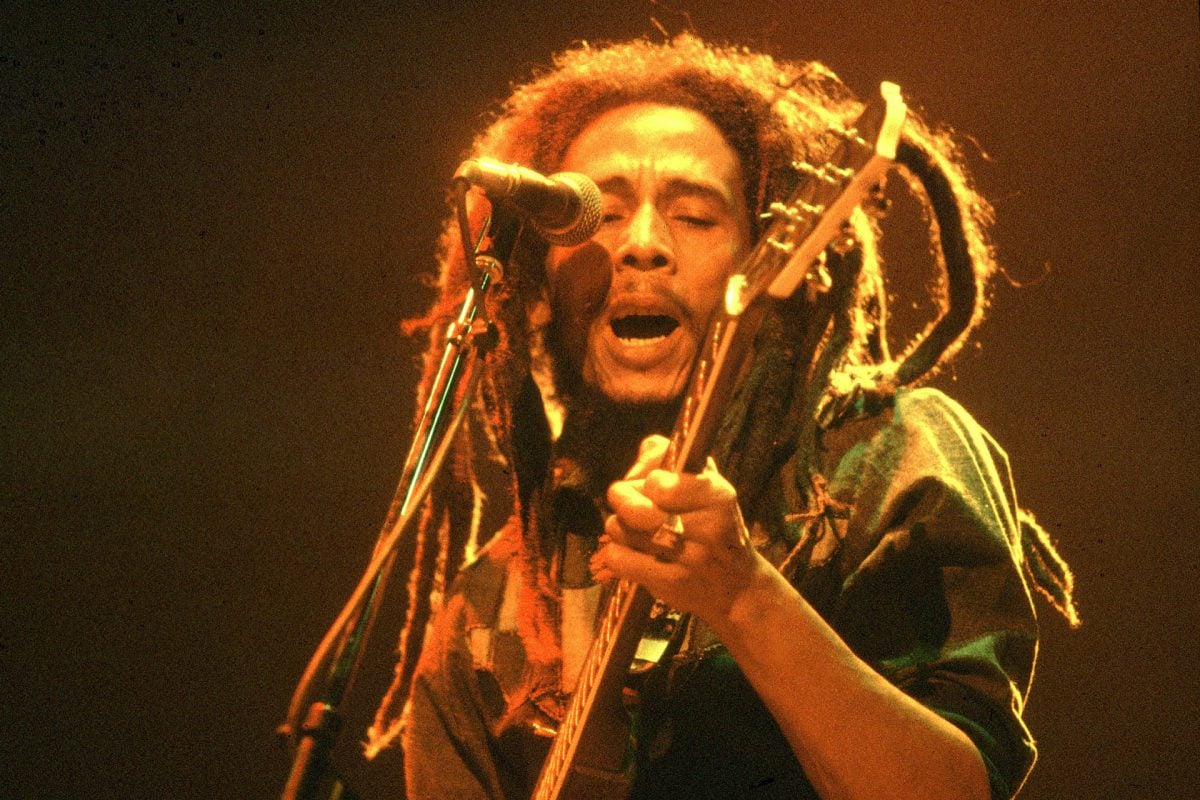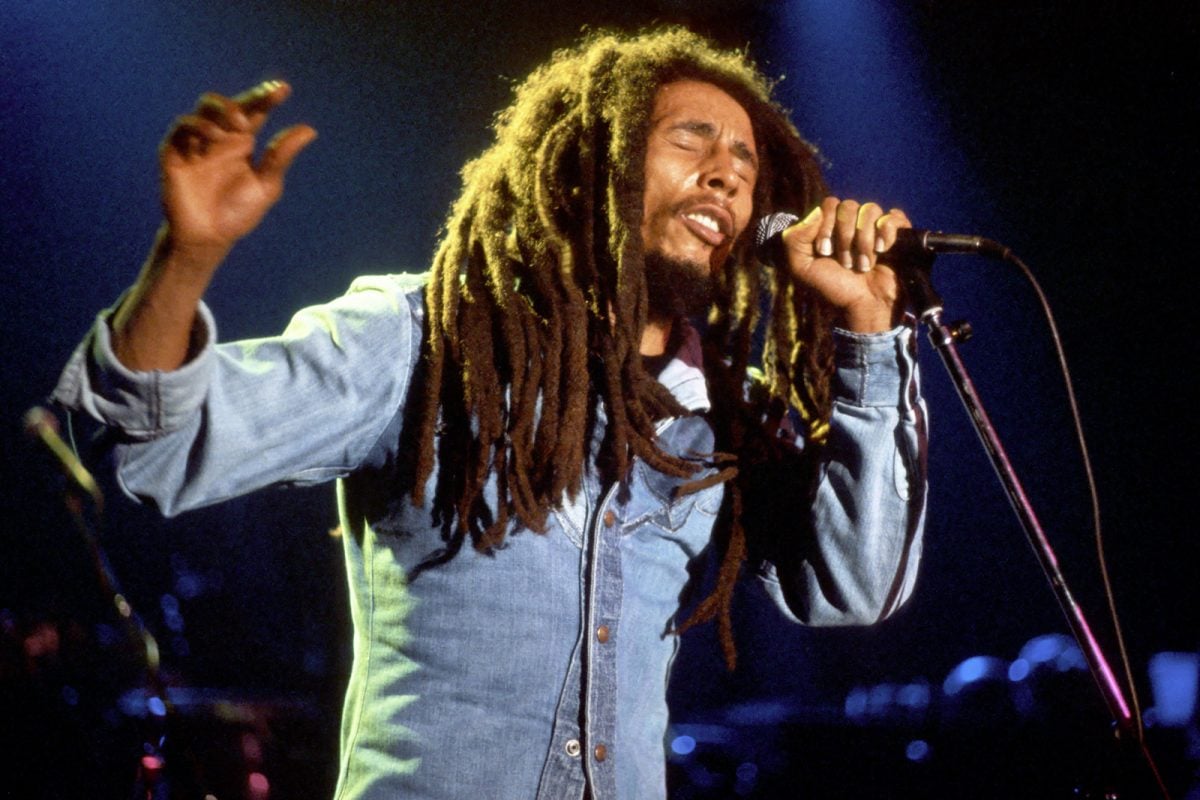40 Years After His Death, Bob Marley’s Impact Still Strong

Forty years have gone by since the late Honorable Robert Nesta Marley’s transition on May 11, 1981. And, three years ago on May 11, 2018, the number of years since Marley’s passing – 37 to be exact – uniquely surpassed the number of years that the he had been alive. Fast forward four decades later to 2021, Marley is found to be effortlessly retaining his position among the ranks of the world’s greatest and most influential musicians.
The King of Jamaica’s Reggae music genre still reigns supreme and maintains relevance to effecting progress among the forgotten and undeserved. Marley was not only a musical maverick but a philosopher; a prophetic storyteller. The senior Gong performed songs such as Them Belly Full and Real Situation that are meant to expand his audience’s mind and thinking, while songs like Natural Mystic and Ride Natty Ride preach perseverance and a quiet calm. Though, this quiet calm was sometimes disrupted by interviewers.
One of the more memorable incidences occurred during a New Zealand interview, at the end of the 70s, when Marley was charged to set a few things straight after he was being quizzed about partaking in ‘the sacred sacrament.’
“Herb mek yuh look pon yuself an…instead of you want to work for ‘Di Man’ you want fi be one of the Man too,” the Rastafarian superstar clarified to the interviewer. He explained, “me see myself as a revolutionary, who don’t have no help an nah take no bribe from no one, mi fight it single-handed through music.”
Legend, Skipper and the more significant Tuff Gong, or simply Gong, are a few of the monikers that Reggae music’s most recognizable superstar and Jamaica’s best known offspring answered to throughout his 36-year life. Rivaled only by his stage name, the latter holds the title for being four letters that brands the Marley empire around the globe.
A brand that fellow Jamaican artist Shaggy noted is still very relevant in the local music genre’s crossover performance. The veteran deejay told Billboard magazine that “there’s no way me, Bob [Marley] and Sean [Paul] (who identifies Marley as one of his influences) should be there. I want the new generation to stream better than me because it boosts the genre and gives it a seat at the table.”
Gong was a philosopher and a behemoth in both music and life. But, mystically and ironically, his larger-than-life persona was condensed into an unimposing stature; the Small Axe was the personification of ‘mi likkle but mi tallawah.’ The Reggae music revolutionary was a conveyor of thought-provoking, freedom-fighting, uplifting anthems that were not only framed to mentally unshackle the marginalized, but to, also, liberate the oppressed.

Despite not being a towering physical figure, the mettle of the Tuff Gong was never up for challenge after the songwriter crafted song like War to construct the foundation of the platform for generations to be bold, to demand equality, and to be seen and judged without difference. There are a plethora of these songs that continue to inspire; songs such as Get Up, Stand Up, Rebel Music, I Shot the Sheriff, Concrete Jungle, and the soul-stirring duo, Redemption Song and No Woman, No Cry.
Marley’s discography incubates a host of fiery themes that have over the years empowered peoples and inspires radical changes. For example, the better part of forty-one years ago his music became the soundtrack to the sovereignty of an African nation and, by extension, a comfort for the people of that newly independent country, Zimbabwe.
Marley penned Zimbabwe the song to rally a suffering people to change their circumstances. The love song to the African country stands as one of the singer’s most beloved. With lyrics such as “every man got a right to decide his own destiny, and in this judgment there is no partiality,” the bones of the track rings true 40 years later, as minority peoples of the world still face oppressive systems and inequity.
But, love is the universal language and also featured prominently among the singer’s music; and he more than capably serviced the niche with classic love songs such as Guava Jelly, Stir it Up, Waiting In Vain, Satisfy My Soul, and Is This Love. Interestingly enough, in the video that accompanied the latter, the King of Reggae crossed paths with a girl who would grow up to break barriers and become an icon in her own right, British-Jamaican supermodel Naomi Campbell.
Over seven years ago the model acknowledge that the appearance in the video with Marley was indeed her foray into stardom, on US talk show The Tonight Show Starring Jimmy Fallon. Recently, Campbell, again, recalled – in a conversation with world record holder and eight-time gold medalist, Usain Bolt – the time she met Marley.
“What a beautiful man. So gentle…I remember his energy,” Campbell remarked about her impression of the Reggae music icon when she met him several decades ago.
Bolt countered with his own experience that further solidifies the impact that the Reggae legend has on the peoples of the world. “I remember when I was 15…I went to Hungary for the first time…we went to this concert in the park, and most of these people did not speak English, or very good English…and everybody was singing Bob Marley songs…it blew my mind…it was magnificent to know how far Bob Marley had put Jamaica on the map.”
Bolt added that Marley had “paved the road for a lot of us; not just in music, just Jamaica in general to reach all corners of the world.”
Meanwhile – in vain with Marley’s global reach and his prophetic utterance ‘dem ago tiyad fi see mi face’ – the musician’s legacy remains more popular than it was during his lifetime. The Gong brand is preserved and nurtured by his children and their children and, in the future, their children’s children; the Babylon System icon will live on for generations to come.
Marley is the patriarch of Reggae music scions and an architect of Jamaica’s global footprint, and whose body of work is as undeniable as his lyric “the stone that the builder refuse shall be the head cornerstone.”
